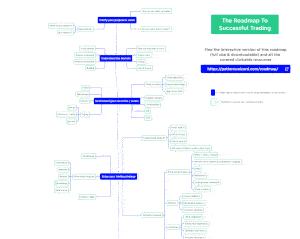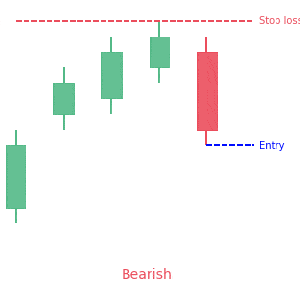Short-term trading refers to buying and selling assets, such as stocks, currencies, or commodities, over a short period of time, typically days, weeks, or months. It is a high-risk, high-reward style of trading. However, it requires a deep understanding of market trends and analysis, a willingness to take on risk, a significant time commitment, and sufficient capital to cover transaction costs and fees.
In short, short-term trading has certain pros and cons that you need to know before opting for it. If you want to know its pros and cons, then you are on the right platform. Let us enlighten you!
The pros of short-term trading
Short-term trading offers a number of advantages for traders. Such as:
1. Quick Profits
Short-term trading offers quick profits by taking advantage of small price movements in the market. It does not make traders wait for long-term price trends to emerge. Thus, they can generate profits faster.
2. Flexibility
Short-term traders can quickly adjust their trading strategies based on market conditions. They can switch between different assets, take advantage of news events, and exit positions quickly if needed.
3. Low-Risk Exposure
Short-term traders typically hold positions for a short period of time. Therefore, they are exposed to less risk than long-term investors. They can take advantage of small price movements without being overly exposed to market volatility.
4. Efficient Use of Capital
Short-term trading requires less capital than long-term investing. Additionally, traders can use leverage to amplify their returns. Thus, they can generate higher profits with a smaller investment.
5. Constant Learning
Short-term trading requires traders to stay up-to-date with market news, economic indicators, and technical analysis. This constant learning process can help traders develop a deeper understanding of the market and improve their trading skills.
6. More Opportunities
Short-term traders can take advantage of a wider range of opportunities. This is because they are not limited to a particular asset or market. They can trade in different markets, sectors, and asset classes. It also means they have more chances to make profitable trades.
7. No Emotional Attachment
Short-term traders do not get emotionally attached to their positions. They are only looking to profit from small price movements. Additionally, they can make objective decisions based on market conditions, without being influenced by their emotions.
So, we can see that short-term trading offers a number of advantages for traders, including quick profits, flexibility, low-risk exposure, efficient use of capital, constant learning, more opportunities, and no emotional attachment. However, short-term trading also carries risks and requires traders to have a deep understanding of the market and a solid trading strategy.
The cons of short-term trading
Here are some of the most prominent disadvantages of short-term trading.
1. High transaction costs
Short-term trading involves frequent buying and selling. Therefore, it accompanies high transaction costs. These costs can eat up your profits and make it harder to achieve your financial goals.
2. High risks
Short-term trading also involves a higher degree of risk than long-term investing. Short-term traders face market volatility, which can result in significant losses if the market turns against them.
3. Time-consuming
Trading on a short-term basis also requires a significant time commitment. Traders need to constantly monitor the market and analyze market trends to identify opportunities for profitable trades.
4. Limited gains
While trading on a short-term basis can generate significant gains, the gains are often limited. Traders may need to make multiple trades per day to generate meaningful profits.
5. Tax implications of short-term trading
Short-term traders may also face significant tax implications. Profits generated from short-term trades are typically taxed at a higher rate than long-term capital gains. That being said, tax implications can reduce the trader’s overall profitability.
6. Emotional pressure
Short-term traders are also often under intense emotional pressure, as they need to make quick decisions and react to market changes in real time. This pressure can lead to impulsive decisions that can negatively impact their performance.
7. Increased stress
Short-term trading can also be a stressful activity. Traders are constantly exposed to market fluctuations, which can cause anxiety and stress, leading to burnout and a decline in performance.
8. Lack of diversification
Trading on a short-term basis also often involves trading a small number of securities, which can limit diversification and increase risk.
Tips on how to minimize risk and maximize profits on short-term trading
Short-term trading can be risky, but there are several strategies you can use to minimize risk and maximize profits. Here are some tips:
1. Have a short-term trading plan
Develop a trading plan that outlines your goals, risk tolerance, and entry and exit points. Stick to this plan to avoid making emotional decisions.
2. Use stop-loss orders
A stop-loss order is an order placed with a broker to sell a security when it reaches a certain price. This can help minimize losses in case the market moves against you.
3. Focus on high-volume stocks
High-volume stocks tend to be more liquid, which means they are easier to buy and sell quickly. This can help you enter and exit positions more easily.
4. Use technical analysis
Technical analysis involves analyzing charts and patterns to identify trends and potential entry and exit points. This can help you make more informed trading decisions.
5. Stay informed
Keep up-to-date with news and events that could impact the market. This can help you make more informed trading decisions.
6. Manage risk
Use position sizing and risk management techniques to limit your exposure to any one trade. This can help minimize losses and protect your capital.
7. Keep emotions in check
Don’t let emotions such as fear, greed, or hope drive your trading decisions. Therefore, stick to your trading plan and use logic and reason to make decisions.
 Good Trading requires the Best Charting Tool!
Good Trading requires the Best Charting Tool!

 We loved Marwood Research’s course “Candlestick Analysis For Professional Traders“. Do you want to follow a great video course and deep dive into 26 candlestick patterns (and compare their success rates)? Then make sure to check this course!
We loved Marwood Research’s course “Candlestick Analysis For Professional Traders“. Do you want to follow a great video course and deep dive into 26 candlestick patterns (and compare their success rates)? Then make sure to check this course!